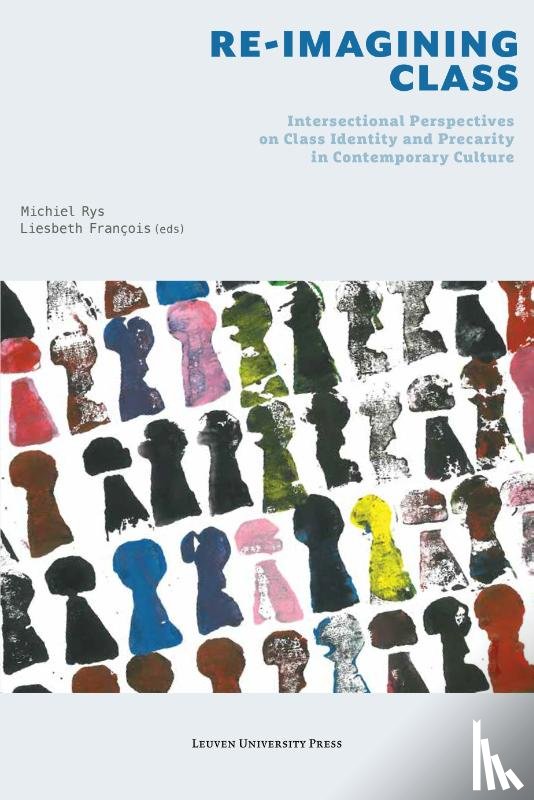Omschrijving
Unique cross-cultural and multimedial approach to class identity and precarity in literature, theatre, and film Contemporary culture not merely reflects ongoing societal transformations, it shapes our understanding of rapidly evolving class realities. Literature, theatre, and film urge us to put the question of class back on the agenda, and reconceptualize it through the lens of precarity and intersectionality. Relying on examples from British, French, Spanish, German, American, Swedish and Taiwanese culture, the contributors to this book document a variety of aesthetic strategies in an interdisciplinary dialogue with sociology and political theory. Doing so, this volume demonstrates the myriad ways in which culture opens up new pathways to imagine and re-imagine class as an economic relation, an identity category, and a subjective experience. Situated firmly within current debates about the impact of social mobility, precarious work, intersectional structures of exploitation, and interspecies vulnerability, this volume offers a wide-ranging panorama of contemporary class imaginaries. Contemporary culture not merely reflects ongoing societal transformations, it shapes our understanding of rapidly evolving class realities. Literature, theatre, and film urge us to put the question of class back on the agenda, and reconceptualise it through the lens of precarity and intersectionality. Relying on examples from British, French, Spanish, German, American, Swedish and Taiwanese culture, the contributors to this book document a variety of aesthetic strategies in an interdisciplinary dialogue with sociology and political theory. Doing so, this volume demonstrates the myriad ways in which culture opens up new pathways to imagine and re-imagine class as an economic relation, an identity category, and a subjective experience. Situated firmly within current debates about the impact of social mobility, precarious work, intersectional structures of exploitation, and interspecies vulnerability, this volume offers a wide-ranging analysis of contemporary class imaginaries. Acknowledgments
Re-Imagining Class: Intersectional Perspectives on Class Identity and Precarity in Contemporary Culture
Michiel Rys and Liesbeth François
PART 1 REDISCOVERING CLASS: CONTINUITIES AND RUPTURES
1.1 Writing (for) the Precariat: Mats Teglund’s Cykelbudet (2021) and Pelle Sunvisson’s Svenska palmen (2021)
Magnus Nilsson
1.2 Making Visible the Invisible: Spanish Post-Crisis Fiction
Christian Claesson
PART 2 PERSONALISING CLASS: INDIVIDUALS AND COLLECTIVES
2.1 The Poetics of Personal Authenticity: Diversity, Intersectionality and the Working Class in Contemporary German Literature
Christoph Schaub
2.2 Narrating the Precariat: Social Wounds in Terézia Mora’s and Wilhelm Genazino’s Novels
Olaf Berwald
2.3 “Know Where to Fish”: Class and Gender Precarity and Project-based Networks in Creative and Cultural Industries
Valeria Pulignano, Deborah Dean, Markieta Domecka and Lander Vermeerbergen
PART 3 NARRATING CLASS: VOICE AND BELONGING
3.1 Double(ing) Voices: Narrating Precarious Class Status and Class Identities
Sula Textor
3.2 Obstacles to Leaving, Problems of Arriving: Gender and Genealogy in Contemporary German Narratives of the Social Climber (Christian Baron, Bov Bjerg, Deniz Ohde, Anke Stelling)
Irene Husser
3.3 Narrating Class and Classlessness in Contemporary British Novels of Black Women’s Social Climbing
Katrin Becker
PART 4 PERFORMING CLASS: MATERIALITY AND AFFECT
4.1 Affected by Discomfort: Class and Precarity in Twenty- First Century Theatre
Marissia Fragkou
4.2 The Redundancy: Playing Production in Academic Capitalism
Sarah Pogoda
4.3 “The View Is Nice, but You Can’t Eat It”: A Poetics of Precarity in Bait (2019, Dir: Mark Jenkin)
Daniel Brookes
PART 5 CLASS BEYOND THE HUMAN: WORK EXPERIENCES AND THE ANTHROPOCENE
5.1 Bare Land: Alienation as Deracination in Anna Tsing and John Steinbeck
Tim Christiaens
5.2 Interspecies Storytelling for Prudent Predation
Joeri Verbesselt and Syaman Rapongan
List of Contributors


